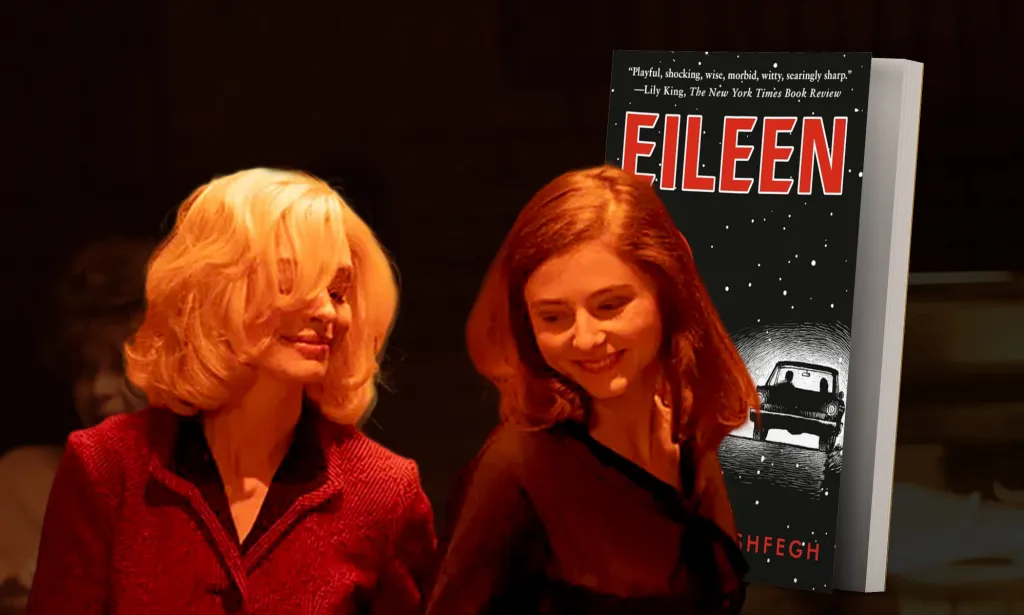Ottessa Moshfegh on bringing her sapphic thriller Eileen to the big screen: ‘Being queer isn’t just about non-heteronormative sex’
Sign up for more LGBTQ+ news and updates at TrueQueer.
When Ottessa Moshfegh released her novel Eileen in 2015, she found herself facing intense criticism and scrutiny. The book, which was shortlisted for the Man Booker Prize, features a disturbed and unpleasant protagonist named Eileen Dunlop. Journalists questioned Moshfegh about why she would write such a character, calling her “disgusting” and abnormal. Moshfegh took these criticisms personally, feeling defensive about her creation.
However, as time has passed, Moshfegh has learned to detach herself from the negative reactions to Eileen. She has since released three more novels, including the popular Gen-Z favorite My Year of Rest and Relaxation. With a film adaptation of Eileen directed by William Oldroyd now in cinemas, Moshfegh is embracing the opportunity to see her work reach a new audience.
Eileen tells the story of a plain and listless young woman working as a receptionist in an institution for young offenders in 1960s Massachusetts. She has sexual fantasies about her coworkers, harbors thoughts of killing her abusive alcoholic father, and is preoccupied with her own bowel movements. Moshfegh believes that Eileen is an honest portrayal of the thoughts and desires we all have behind closed doors.
The film adaptation largely follows the same plot as the book, with Eileen yearning for an escape from her oppressive life. The arrival of a glamorous new prison counselor named Rebecca Saint John changes Eileen’s perspective and makes her dare to dream for more. However, their relationship has disastrous consequences, leading to a tragic ending.
One aspect of the story that has been widely discussed is the queer undertones between Eileen and Rebecca. While the book only hints at their attraction, the film adaptation makes it more explicit. Moshfegh believes that reading and seeing are two different experiences, and the film’s portrayal of their desire was not intentional on her part. She is comfortable with the ambiguity in the novel and feels that labeling their relationship is unnecessary.
In a year that has seen an increase in LGBTQ+ representation in mainstream cinema, Eileen has been hailed as a queer film by director William Oldroyd. Moshfegh agrees with this assessment, as she believes queerness encompasses more than just non-heteronormative sex. It is about non-heteronormative feelings and relationships, which are present throughout the story.
Moshfegh’s husband, screenwriter Luke Goebel, offers another perspective on the film. He sees it as a story about obsession and desire, not necessarily focused on wanting another person but rather wanting a different reality. Both Eileen and Rebecca have vulnerability beneath their stoic exteriors, and their connection offers them a new way of seeing themselves.
The actors in the film bring the story to life, with Thomasin McKenzie portraying Eileen as intriguingly understated. Anne Hathaway’s performance as Rebecca has been praised for its magnetism and ability to steal focus. Moshfegh is grateful to have collaborated with such incredible artists on the project.
As Eileen makes its way to the big screen, Moshfegh is excited to see her novel reach a wider audience. She has learned to detach herself from the criticisms and embrace the opportunity for her work to grow and evolve. Eileen is now playing in cinemas, offering viewers a captivating and sapphic thriller experience.
Follow us on: Facebook for more LGBTQ+ news and updates at TrueQueer.
“sapphic thriller Eileen”
![]()

